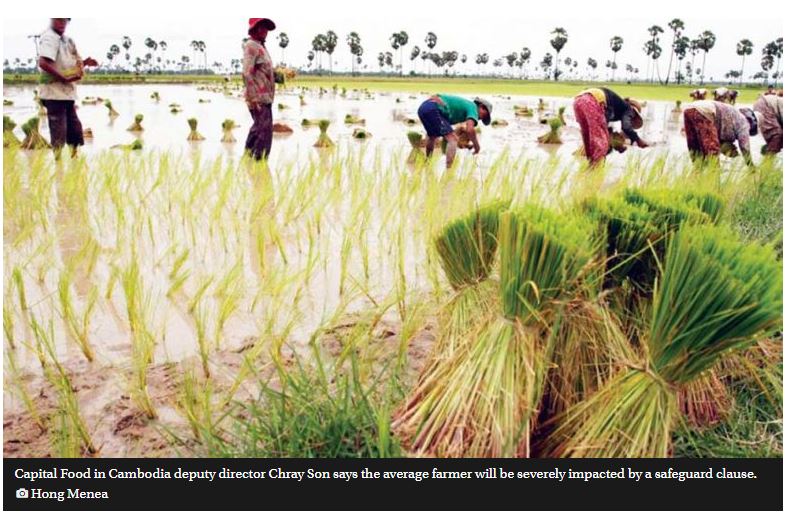CRF voices concern over EU rice tax on Cambodia
The president of the Cambodia Rice Federation (CRF) has expressed concern over an impending EU tariff on Cambodian rice imports, saying that it is factors within EU states that are harming European farmers most.
“Difficulties faced by European farmers are largely due to the lack of collaboration between them, millers and traders,” CRF president Sok Puthyvuth told the press on Friday.
He said the “high cost of milling in [EU]member states” was the main obstacle to improving European rice industries, not imports of Cambodian rice.
Sok Puthyvuth’s comments come following a November 5 announcement from the European Commission, an arm of the EU, that exporters of Cambodian and Burmese Indica white rice will face increased taxes within three years.
The customs tariff duty will be €175 (US$198) per tonne in the first year, €150 in the second year, and €125 the year after.
The tariffs are the result of an EU investigation launched in March after Italian farmers called for a safeguard clause restricting rice imports.
They argued that such imports were harming EU farmers. Italian rice farmers first complained about rice imports in 2014, but March’s investigation was the first time the European Commission launched a formal probe.
Scepticism
However, the CRF is sceptical that safeguard measures will improve the livelihoods of EU farmers, as much of Cambodian rice is not directly competing with their produce. As much as 55 per cent of Cambodian rice currently imported into the bloc is fragrant rice – a variety difficult to grow in the EU.
The impact of tariffs on the Kingdom’s more than three million rice farmers is of major concern, with the deputy director of Capital Food in Cambodia, Chray Son, saying the average farmer will be most severely impacted by a safeguard clause.
“Our cost of production is high, so if we pay Tax to the EU, how can we compete in the market? The farmers will suffer first . . . it’s just an excuse from EU, our rice is a small share in the market – how can we hurt their rice market?”
Centre for Policy Studies director Chan Sophal believes that tariffs will likely mean Cambodian farmers will increasingly look to other Asean nations to sell their products.
“If the tariff is implemented it will impact the Cambodian rice industry, and farmers will rely more on the market from Thailand and Vietnam as a result.”
Source: https://www.phnompenhpost.com/business/crf-voices-concern-over-eu-rice-tax-cambodia


 Thailand
Thailand




